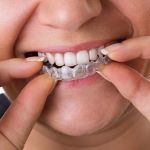How I Treated My Dry Mouth and Prevented Tooth Decay
For years, I struggled with dry mouth, also known as xerostomia, without realizing just how much it was affecting my oral health. I noticed that my mouth often felt parched, especially in the morning, and no matter how much I drank, the dryness never seemed to go away. At first, I chalked it up to stress or dehydration, but as time went on, I started to notice more severe issues like bad breath, tooth sensitivity, and even cavities forming faster than usual. It wasn’t until I visited my dentist that I learned how much dry mouth can contribute to tooth decay and other oral health problems. In this article, I’ll share what I’ve learned about treating dry mouth and how I’ve managed to prevent tooth decay in the process.
1. Understanding Dry Mouth and Its Impact
Dry mouth occurs when your mouth doesn’t produce enough saliva, which is essential for maintaining oral health. Saliva helps wash away food particles, neutralizes acids, and provides disease-fighting substances to protect your mouth. Without sufficient saliva, your mouth becomes dry, and it can lead to an increase in bacteria, plaque buildup, and an increased risk of tooth decay. At first, I didn’t realize how interconnected dry mouth and tooth decay were, but after my dentist explained it, it all made sense.
1.1. Common Causes of Dry Mouth
Dry mouth can be caused by a variety of factors. For me, the main culprit was medication. I had been taking medications for high blood pressure for a while, and one of the common side effects of those meds was dry mouth. Other potential causes of dry mouth include:
- Medications, especially antihistamines, decongestants, and painkillers
- Health conditions like diabetes, stroke, or autoimmune diseases
- Smoking or chewing tobacco, which can reduce saliva production
- Dehydration, often caused by not drinking enough water
- Stress and anxiety, which can disrupt normal saliva flow
Once I understood the potential causes of dry mouth, I was able to better target the solution and start making changes in my lifestyle and care routine.
2. The Importance of Treating Dry Mouth
Not addressing dry mouth can lead to serious dental issues, including an increased risk of tooth decay, gum disease, and oral infections. Since saliva plays such an important role in protecting your teeth, when there isn’t enough of it, cavities can develop more easily. This was something I didn’t realize until I started seeing more cavities on my teeth and feeling more sensitive to hot and cold foods.
2.1. Preventing Tooth Decay with Proper Care
Once I understood the connection between dry mouth and tooth decay, I knew I had to take immediate action. One of the first steps I took was improving my oral hygiene routine. Even though dry mouth can make it more difficult to maintain a healthy mouth, there are several steps I took that significantly reduced my risk of decay:
- Brushing my teeth more frequently: I started brushing my teeth after every meal, rather than just twice a day, to remove food particles and plaque that could contribute to cavities.
- Flossing daily: I made sure to floss between my teeth every day to remove any debris that could contribute to plaque buildup, which is harder to remove when you have dry mouth.
- Using fluoride toothpaste: Fluoride helps to strengthen enamel and prevent cavities, which was particularly important for me since dry mouth made my teeth more susceptible to decay.
2.2. Hydration is Key
One of the most effective ways I treated my dry mouth was by staying hydrated. Drinking plenty of water throughout the day helped keep my mouth moist and reduce the symptoms of dry mouth. I made it a habit to carry a water bottle with me wherever I went, sipping regularly to stay hydrated and keep my mouth from drying out. Staying hydrated also helped improve my overall health, which made a noticeable difference in how I felt overall.
3. Additional Treatments for Dry Mouth
In addition to staying hydrated and maintaining a good oral hygiene routine, I found several other treatments that helped manage my dry mouth:
3.1. Using Saliva Substitutes
One solution my dentist recommended was saliva substitutes. These are available over-the-counter in the form of gels, sprays, or mouthwashes. The idea is to mimic the effects of natural saliva and provide temporary relief for dry mouth. I found that using a saliva substitute in the mornings or before bed helped to keep my mouth moist and comfortable throughout the night. It was a game-changer, especially when I woke up feeling like my mouth was too dry.
3.2. Chewing Sugar-Free Gum
Chewing sugar-free gum or sucking on sugar-free lozenges also helped stimulate saliva production. I started carrying a pack of sugar-free gum with me so I could chew it throughout the day. This not only helped with dry mouth but also kept my breath fresh. Xylitol, a natural sugar alcohol found in some sugar-free gums, is especially beneficial for oral health because it helps reduce the growth of harmful bacteria in the mouth.
3.3. Avoiding Dry Mouth Triggers
There were certain triggers that exacerbated my dry mouth symptoms. I made sure to avoid or limit these triggers, which included:
- Caffeinated beverages like coffee and tea, which can dry out your mouth
- Alcohol, which is known to contribute to dehydration
- Smoking or using tobacco products, which can worsen dry mouth
By avoiding these triggers, I was able to reduce my symptoms and keep my mouth feeling more comfortable.
4. When to See a Dentist or Doctor
While dry mouth is common, especially for people who take certain medications or have specific health conditions, it’s important to seek professional help if you’re struggling with it. If dry mouth persists despite making lifestyle changes or if it leads to other oral health issues like cavities or gum disease, it’s a good idea to consult with your dentist or doctor. In my case, visiting my dentist helped me get the right treatments and advice to manage my symptoms effectively.







 Risas Dental and Braces - Boulder Crossings4.0 (312 review)
Risas Dental and Braces - Boulder Crossings4.0 (312 review) Gentle Dental Service4.0 (113 review)
Gentle Dental Service4.0 (113 review) Premier Dental4.0 (33 review)
Premier Dental4.0 (33 review) Pratte John DDS4.0 (15 review)
Pratte John DDS4.0 (15 review) Martinez Z Margarita DDS1.0 (1 review)
Martinez Z Margarita DDS1.0 (1 review) Growing Smiles of Voorhees4.0 (2464 review)
Growing Smiles of Voorhees4.0 (2464 review) The Importance of Oral Health Education During Pregnancy for a Healthy Pregnancy
The Importance of Oral Health Education During Pregnancy for a Healthy Pregnancy Best Tips for Brushing Your Teeth Properly for Healthy Gums: Essential Techniques for Oral Health
Best Tips for Brushing Your Teeth Properly for Healthy Gums: Essential Techniques for Oral Health Why Skipping Dental Checkups Can Lead to Bigger Oral Health Problems
Why Skipping Dental Checkups Can Lead to Bigger Oral Health Problems Advantages of Porcelain Dental Restorations
Advantages of Porcelain Dental Restorations How Can Diabetes Cause Tooth and Gum Problems? Preventing and Managing Oral Health Issues
How Can Diabetes Cause Tooth and Gum Problems? Preventing and Managing Oral Health Issues Healthy Habits for Promoting Good Oral Health and Hygiene: Tips for a Healthy Smile
Healthy Habits for Promoting Good Oral Health and Hygiene: Tips for a Healthy Smile